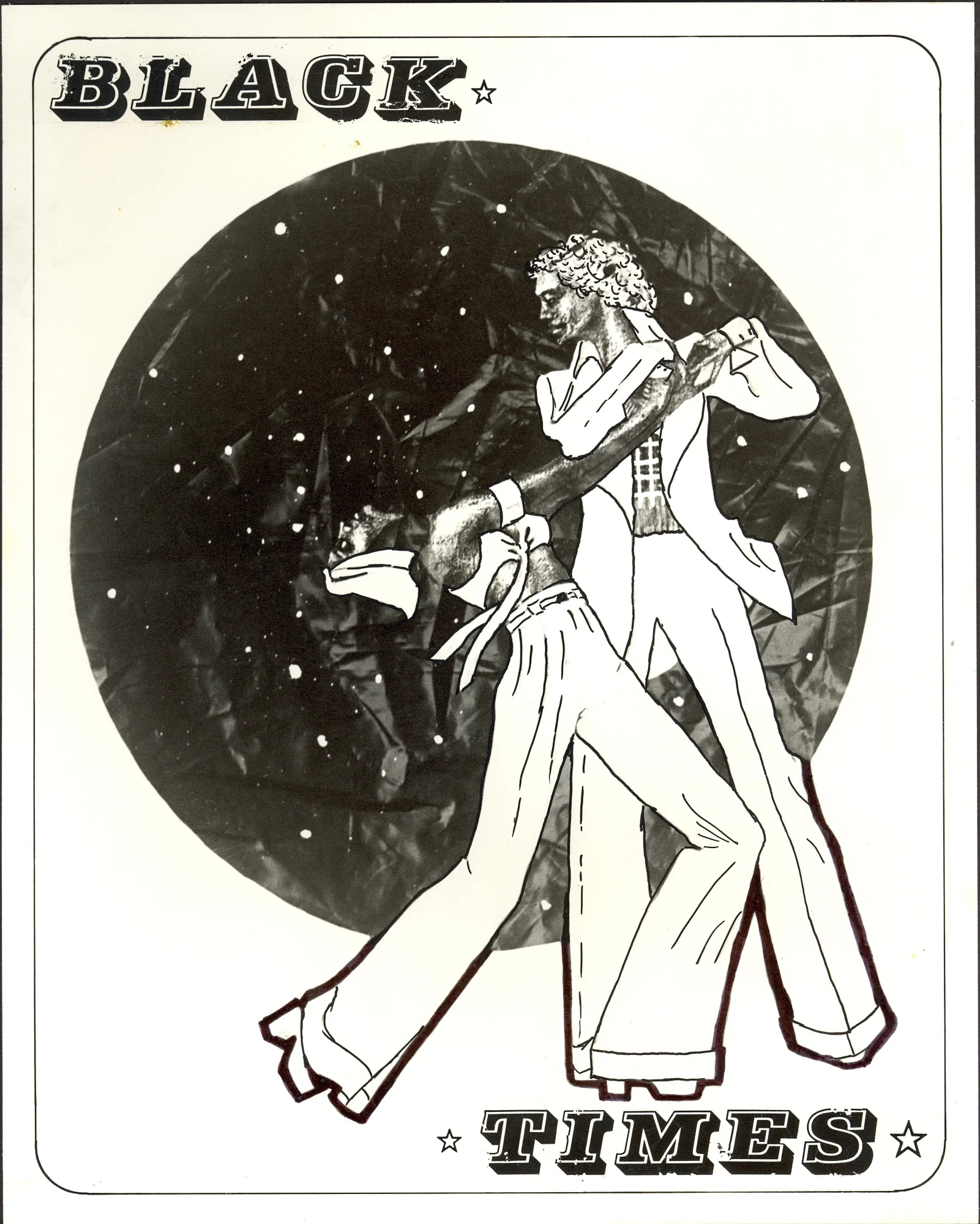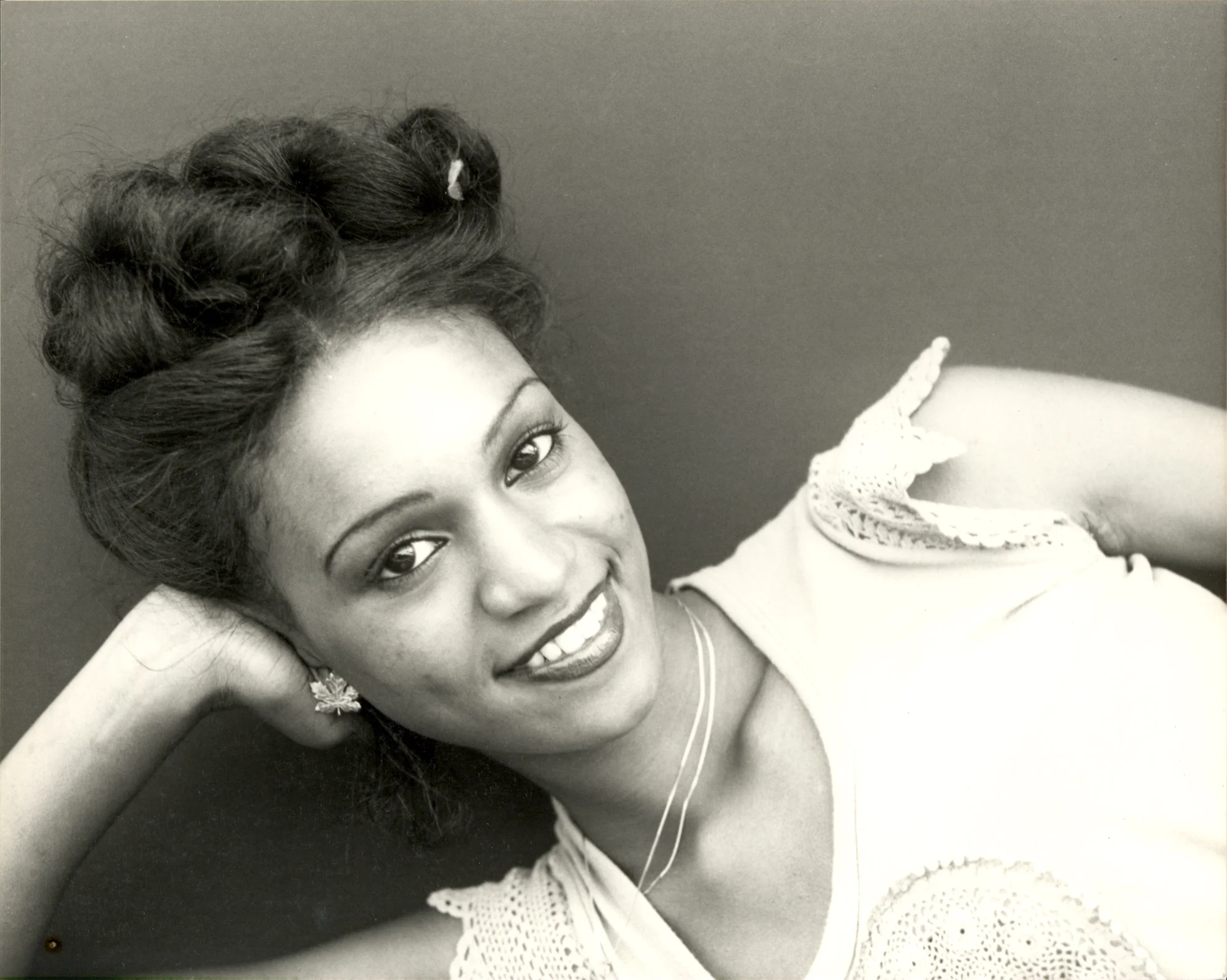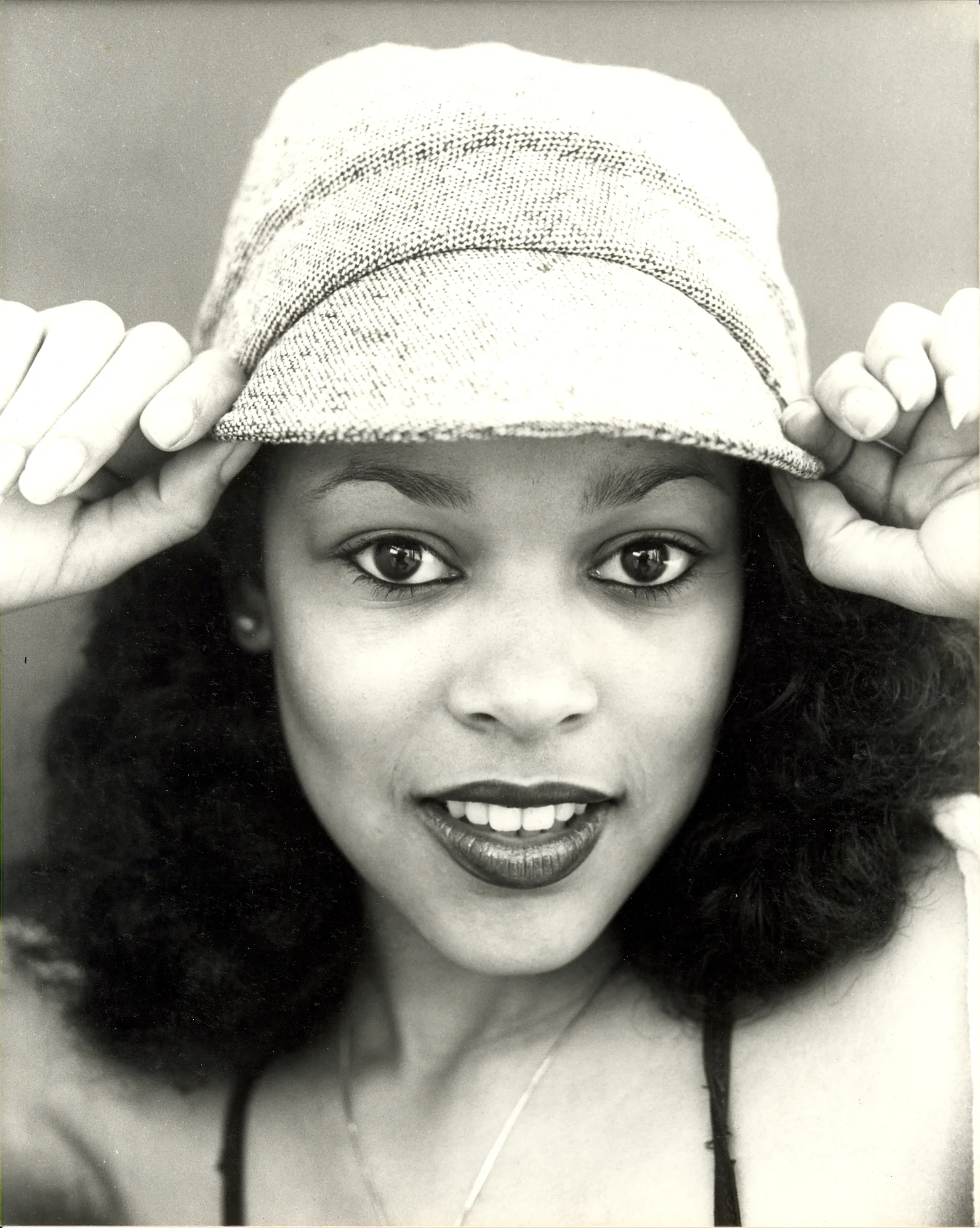MY BUSINESS CARD UPON LEAVING THE GROUP MAXAYN
COVER CONCEPT I
TEE SHIRT, POSTER CONCEPT FOR WATSONIAN
COVER CONCEPT II
UNIMAXS Ltd.
I have always considered myself a career student. As a young boy I received the perfect attendance award every year. While working with Johnny “Guitar” Watson, I made it a point to take classes when ever we were not touring. Watson would always express concern about this, fearing it would conflict with our travel, and he often remarked “ET I need a drummer not a damn doctor.”
At Los Angeles City College I studied percussion, graphic art, photography, and French and German. I wanted to produce music and to be a publisher. I had a project called Black Times, a publication that would focus exclusively on black issues. Upon leaving the group Maxayn, I formed Unimaxs Ltd. , focusing on music production and photography.
BLACK TIMES MODEL BRANDY/DANCER
BLACK TIMES EDITORIAL WOULD READ: WATSON BLOWS MILLION DOLLAR A&M RECORD DEAL.
BLACK TIMES SINGER/MODEL GEORGIA “G”
BLACK TIMES MODEL PEGGY
In 1977, while assisting a photographer friend of mine in Hollywood on assignment for Haze production, I met an aspiring young actress/model named Ola Ray, who would go on to play the love interest in the Michael Jackson Thriller Video. Ray and I became good friends and business associates, assisting each other in our endeavors. She agreed to pose for my projects, and in return I provided her security and with photo services. In fact I was the future “ Miss Thriller’s first Hollywood bodyguard and photographer. I also shot the portfolio that got “Miss Thriller” her spread in Playboy magazine. In her playmate biography Ola Ray proclaimed her two favorite musicians were Michael Jackson and Emry Thomas.
OLA RAY MADE PHOTOGRAPHY EASY
OLA RAY PRE “ CLASSY CURL”
BLACK TIMES CALENDAR SECTION
OLA RAY PLAYBOY PROMOTIONAL SHOT
note
OLA RAY WAS ALWAYS “MISS THRILLER”
As my friend and business partner, Ray told me she thought Watson was taking advantage by keeping my production royalties. She was absolutely right, but being in an environment of Macks, Players, and Pimps her female voice was mute. I however believed that I had the situation under control and that Ray didn’t fully understand it. Being signed with DJM a European record company, placed us at a disadvantage. Money had to be transferred between the two countries, and the recession taking place in England meant that only so much currency was allowed to leave the country. In retrospect DJM and management used this to manipulate payments to Watson. He was advanced only so much money at a time with assurances that the balance was forthcoming. Watson in turn advanced me partial payment and indicated that more was on the way. My own ego got in my way. I thought I was in control, I was a producer, and I knew how to make a record. I saw a bigger picture, I saw a record company.
When I arrived in Hollywood in the early 70s, most of my associates had grown up during the Motown era. We wanted to own studios, produce music, write music, and perform. In the group Maxayn this was our mindset. Watson however, belonged to an earlier generation and only thought of a royalty check. I thought that Watson and I had the same vision, I was wrong. Ola Ray was right about Watson taking my money. I thought “the company that never was”, was worth it. I had my own production company and Watson was my biggest client.
In retrospect Watson like many of his peers probably did not like my independence. Old school artists like James Brown, Ike Turner, Solomon Burke, and Johnny “Guitar” Watson demanded loyalty. These egotistical, self-centered, conceited, greedy motherfucker thought that they were doing you a favor by allowing you to be a part of their organization. We could probably attribute this stance to the early years of the recording industry. Back then companies like Race records totally exploited their talented artists like Muddy Waters, Son House, Blind Lemon Jefferson, and many others. Pre-1965 the record companies took everything, and there were no unions to protect black musicians.
Unlike James Brown however, Watson did pay for his musicians hotels and transportation. James Brown was generating over a million dollars a month and yet would not pay his band. I was and still am a fan of James Brown. I was inspired to be a drummer after seeing John Starks (“Jabo”) and Clyde Stubblefield playing with him. I was a fan not because James was such a great singer, I was a fan because of the funky drummers playing his music. I became irate however when I found out that despite of all the great drumming they did on Brown’s biggest hits, “Cold Sweat”, “Papa got a Brand New Bag,” “ The Funky Drummer.” Stark and Stubblefield were never paid for their work. James Brown would also convinced members of his band to go into debt by buying houses or cars. Once they had done so, he would fire them, when things got really bad for them, he would hire them back at a lower wage.
Watson once tried to play me by giving me a Cadillac, which I refused to take. This really angered him. He would often test your loyalty by overpaying you. If you acknowledged this, he would tell you the extra money was your bonus. If you did acknowledge the excess as I did he knew he could trust you. James Brown always took care of his drummers. He would let them fly with him on his Lear Jet, while the rest of the band had to travel by bus. Watson also wanted me to fly with him, but I would not treat my band that way. It was not in my nature to mistreat my fellow musicians. I could not and would not do the things Watson wanted me to do to my band. I am sure my independence and my concern for my band had a lot to do with my demise. Management and Watson could not exploit my people as long as I was around.
Was Vir-Jon a con job from the beginning, or did Watson really start out looking to be the CEO of his own company. We were paid with company checks with the Vir-Jon logo. Deductions were taken out, taxes, medical, etc. On one of the last tours the band suffered an accident. When an affected member tried to file for Workmens Compensation, the fraud came to light. Watson blamed the fraud on a family member who supposedly embezzled money. I guess I will never really know. I trusted Johnny “Guitar” Watson as my brother and friend, and I know for a fact we both loved the music. It was no accident that I recorded all of Watson’s music in the 70s. When I confronted Watson about our production agreement and the thousands of dollars owed to me, we were in the heart of Hollywood at Artisan Sound a recording studio on Wilcox across from the Old post office. Watson was sitting with his feet up on the control board. He looked at me and took a pull on his cigarette. He blew a big puff of smoke and said, “ET next time get it in black and white”. I was furious but I did not lose my composure. I think the drugs had distorted his perspective and his view of me.
Believing that our body of work would speak for itself. I never once considered suing Watson. I wanted to salvage our relationship, not make the situation worse. I thought he would eventually realize how successful we had been and that it was just a matter of time before he would come back to himself. The irony is Watson did clean up and apologize. Unfortunately , it was almost twenty years later.
In 1979 Watson and I as a production team coming off two gold albums were laser sharp. Love Jones our last recording together for DJM was an excellent record and if promoted, it would have gone gold. Watson should have taken me with him to A&M records. We had achieved great success at DJM with Watson as producer and me as his co-producer. When he signed with A&M, one of the stipulations was that Watson was to have a producer. I would have moved from my co-producer status to producer, and it would have been business as usual. We would have continued to generate quality productions and with the resources of an A&M records, we would have gotten platinum. I would have had access to a network of people that would have changed my life. As fate would have it, however, Watson went to A&M records on his own without me and destroyed this great opportunity. To show his displeasure, Watson supposedly walked on Herb Alpert’s desk. It was years before I found out how much money was involved in Watson’s A&M deal. With all of my years of dedication to Vir-Jon and Watson, I should have received at least a million. Fact is if Watson had not crossed me and the other Vir-Jon artists, we all would have gotten rich.
History has shown that my skills mattered in the production of Watson’s music. Watson tried to disavow what my drums did for his music. The proof is in the pudding. I pride myself in knowing I recorded consecutively with Johnny ”Guitar” Watson more than any other musician. Working with me, Watson received two gold albums. Upon terminating our production team, Watson had no more gold records. Watson’s disrespect for me and my drums ended his successful run. I believe his big ego, drugs, and disrespect took him over the edge. For him to think his drumming could stand up to mine was proof of his arrogance. Watson tried to play drums as he did on his last album for DJM, “Guitar” Watson and The Family Clone which was garbage. This effort would explain why A&M records rejected everything he submitted. Of all the drummers Watson worked with in his career, I was the most successful and our association proved the most lucrative to him.













